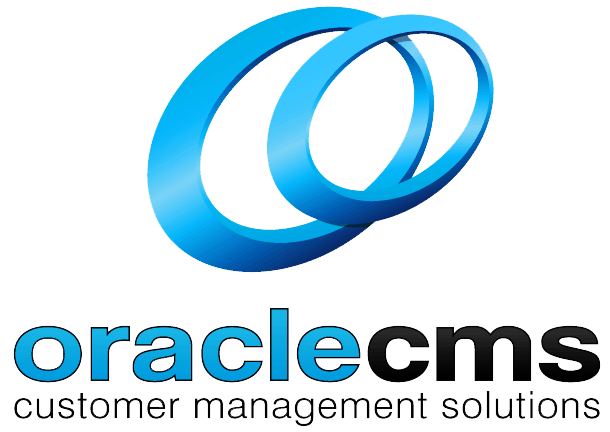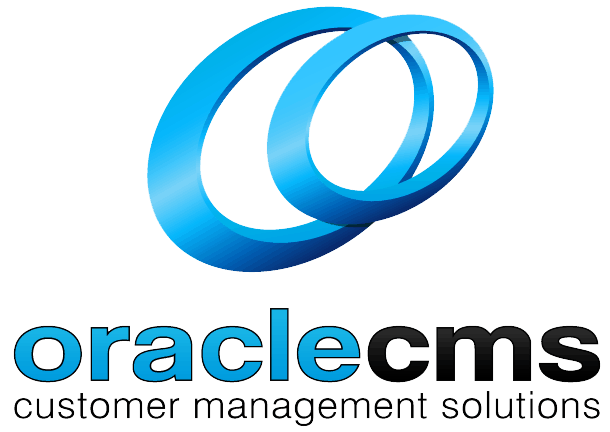
Exploring Different Types of Answering Services
A call answering service is vital for businesses looking to manage their customer interactions efficiently and professionally. These services come in various forms, each offering unique features and benefits tailored to specific business needs. This comprehensive guide will explore the different types of phone answering services, their features, benefits, and ideal use cases, providing an authoritative overview of this essential business solution.
Types of Phone Answering Services
Live Answering Services
Features:
- Real human agents answering calls
- Personalized greetings tailored to the business
- Message taking and call forwarding
- Appointment scheduling and customer support
- Handling complex customer inquiries and providing empathetic responses
Benefits:
- Personal Touch: Human agents provide empathy and understanding, which is crucial for customer satisfaction. This personal touch can significantly enhance the customer experience, making callers feel valued and understood.
- Professionalism: Offers a professional image, enhancing trust and reliability. Businesses can project a more polished image by ensuring calls are answered promptly and professionally.
- Flexibility: Agents can handle a variety of tasks, from simple message taking to complex customer support. This flexibility ensures that businesses can provide comprehensive service to their customers.
- Customer Retention: Personalized interactions help in building long-term relationships with customers, enhancing loyalty and retention rates.
Use Cases:
- Small to Medium Businesses: Businesses that need to maintain a professional image without the cost of a full-time receptionist. Live answering services allow these businesses to provide a high level of customer service without significant investment.
- Healthcare Providers: Clinics and hospitals that require personalized patient interaction and appointment scheduling. Live agents can provide critical support by answering medical queries and managing patient appointments.
- Legal Firms: Law offices needing professional call handling and client management. Live answering services can ensure that sensitive client information is handled with care and professionalism.
Automated Answering Services
Features:
- Use of automated systems to answer calls
- Pre-recorded messages providing information
- Menu options for call routing and voicemail
- Basic information dissemination and call routing without human intervention
Benefits:
- Cost-Effective: Reduces the need for human agents, lowering operational costs. Automated systems can handle large volumes of calls at a fraction of the cost of employing human staff.
- 24/7 Availability: Provides round-the-clock service without the need for staffing multiple shifts. This ensures that customers can get assistance at any time, enhancing their experience.
- High Efficiency: Can handle high call volumes and route calls efficiently. Automated systems can quickly direct callers to the appropriate department or information source.
- Consistency: Ensures consistent responses to common inquiries, reducing the likelihood of errors.
Use Cases:
- E-commerce: Online stores that receive high volumes of routine inquiries about orders, returns, and product information. Automated systems can efficiently handle these inquiries, freeing up human agents for more complex issues.
- Utility Companies: Providers of water, electricity, and gas services that need to manage high volumes of service-related inquiries. Automated answering services can provide information about outages, billing, and service status.
- Tech Support: Companies offering basic troubleshooting through automated menus before escalating to human agents. Automated systems can handle common technical issues, reducing the workload on human support staff.
Virtual Receptionist Services
Features:
- Combines live answering and automated systems
- Virtual receptionists handling calls remotely
- Scheduling, message taking, and customer support
- Integration with online calendars and CRM systems
Benefits:
- Hybrid Solution: Offers the personal touch of live agents with the efficiency of automation. Virtual receptionists can provide personalized service while leveraging automated systems for routine tasks.
- Scalability: Can easily scale with business growth, adding more virtual receptionists as needed. This flexibility ensures that businesses can adapt to changing call volumes.
- Cost-Effective: More affordable than maintaining an in-house receptionist team. Virtual receptionists can provide professional service without the overhead costs of an on-site team.
- Remote Accessibility: Virtual receptionists can work from anywhere, providing businesses with access to a wider talent pool and the ability to maintain operations during emergencies.
Use Cases:
- Startups: New businesses needing professional call handling without significant overhead costs. Virtual receptionists can provide essential support, allowing startups to focus on growth.
- Consulting Firms: Consultants who require appointment scheduling and client management services. Virtual receptionists can manage client interactions and keep schedules organized.
- Real Estate Agencies: Realtors needing efficient call management and scheduling of property viewings. Virtual receptionists can handle inquiries, book appointments, and provide information about listings.
Interactive Voice Response (IVR) Systems
Features:
- Automated systems interacting with callers via pre-recorded messages and menu options
- Callers use keypad or voice commands to navigate menus
- Integration with CRM and other business systems
- Advanced features such as speech recognition and data collection
Benefits:
- Efficiency: Quickly routes calls to the appropriate department or information source. IVR systems can handle high call volumes and reduce wait times for callers.
- Customization: Highly customizable to meet specific business needs. Businesses can tailor IVR menus to provide relevant information and services.
- Data Collection: Can gather valuable caller information before transferring to a live agent. This data can be used to enhance customer service and streamline operations.
- Reduced Human Error: Automated systems reduce the likelihood of errors in call routing and information dissemination.
Use Cases:
- Banking and Finance: Banks and financial institutions that need to manage account inquiries, balance checks, and transaction histories. IVR systems can provide secure access to account information and handle routine banking tasks.
- Telecommunications: Telecom companies providing service status updates, billing inquiries, and technical support. IVR systems can efficiently manage customer inquiries and direct them to the appropriate support channels.
- Healthcare: Hospitals and clinics automating appointment reminders and patient information services. IVR systems can handle appointment scheduling, medication reminders, and patient inquiries.
Detailed Comparison of Phone Answering Services
To better understand the differences between these services, let’s compare them across several key factors:
Human Interaction:
- Live Answering Services: High level of human interaction, ideal for businesses where personal touch is crucial. Customers value the empathy and understanding that human agents provide.
- Automated Answering Services: Minimal human interaction, suitable for routine inquiries. Automated systems can handle high volumes of calls efficiently but may lack the personal touch.
- Virtual Receptionist Services: Moderate human interaction, blending automation with personal service. Virtual receptionists provide a balance between efficiency and personal interaction.
- IVR Systems: Limited human interaction, focuses on efficient call routing and information dissemination. IVR systems are highly efficient but may lack the flexibility of human agents.
Cost:
- Live Answering Services: Higher cost due to human labor. This option is best for businesses that prioritize personal interaction and can afford the associated costs.
- Automated Answering Services: Lower cost, ideal for budget-conscious businesses. Automated systems provide a cost-effective solution for managing high call volumes.
- Virtual Receptionist Services: Moderate cost, offering a balance between automation and human service. Virtual receptionists provide professional service without the overhead costs of an on-site team.
- IVR Systems: Variable cost depending on complexity and customization. IVR systems can be cost-effective for businesses that need to manage large volumes of calls.
Scalability:
- Live Answering Services: Scalable but requires additional agents. Businesses can scale up by hiring more agents as call volumes increase.
- Automated Answering Services: Highly scalable with minimal incremental cost. Automated systems can handle increasing call volumes without significant additional costs.
- Virtual Receptionist Services: Easily scalable with additional virtual receptionists. Virtual receptionists can be added as needed to manage growing call volumes.
- IVR Systems: Highly scalable, suitable for businesses of all sizes. IVR systems can be easily expanded to handle more complex call routing and information dissemination.
Availability:
- Live Answering Services: Dependent on agent schedules, may require multiple shifts for 24/7 coverage. Businesses may need to hire additional agents to provide round-the-clock service.
- Automated Answering Services: 24/7 availability. Automated systems can provide uninterrupted service, ensuring that customers can get assistance at any time.
- Virtual Receptionist Services: Flexible scheduling, can offer extended hours. Virtual receptionists can provide coverage during business hours and beyond.
- IVR Systems: 24/7 availability. IVR systems can handle calls at any time, providing continuous support for customers.
Customization:
- Live Answering Services: Customizable through training and scripts. Human agents can be trained to handle specific inquiries and provide personalized service.
- Automated Answering Services: Limited customization, mainly through pre-recorded messages. Automated systems can provide basic information but may lack flexibility.
- Virtual Receptionist Services: High customization, combining human adaptability with automated processes. Virtual receptionists can provide tailored service based on business needs.
- IVR Systems: Highly customizable to business needs. IVR systems can be tailored to provide specific information and services relevant to
Choosing the Right Phone Answering Service for Your Business
Selecting the right phone answering service for your business can significantly impact your customer service quality and operational efficiency. This section will provide guidance on the critical factors to consider and help match the appropriate service type to your business needs.
Factors to Consider
Business Needs and Call Volume
- Assess Your Call Volume: Determine the average number of calls your business receives daily, including peak times and slow periods. High call volumes may require more robust solutions like IVR systems or a combination of live answering and automated services.
- Nature of Calls: Understand the types of calls you receive. Are they primarily inquiries, appointment scheduling, or technical support? This will help decide whether you need personalized human interaction or if automated systems can handle most of the workload.
Budget Constraints
- Cost Analysis: Evaluate the costs associated with each type of service. Live answering services tend to be more expensive due to labor costs, while automated services and IVR systems are generally more cost-effective.
- Return on Investment (ROI): Consider the potential ROI of each service type. For example, live answering services may lead to higher customer satisfaction and retention, which can offset the higher costs.
Service Availability Requirements
- Business Hours Coverage: Determine if you need 24/7 coverage or just during business hours. Automated services and IVR systems provide round-the-clock availability, while live answering services may require multiple shifts.
- After-Hours Support: If after-hours support is crucial for your business, consider a hybrid approach that combines live agents during peak hours with automated systems for after-hours.
Customization and Integration
- Integration with Existing Systems: Ensure the phone answering service can integrate seamlessly with your existing CRM, scheduling tools, and other business systems.
- Customization Options: Look for services that offer customizable scripts, menu options, and other features tailored to your specific business needs.
Scalability
- Growth Potential: Choose a service that can scale with your business. As your call volume increases, the service should be able to accommodate additional calls without a decline in quality.
- Flexibility: Ensure the service can adapt to seasonal fluctuations or business growth. Virtual receptionist services and IVR systems often offer better scalability.
Matching Service Type to Business Needs
Small to Medium Businesses
- Recommended Services: Live answering services or virtual receptionist services.
- Reasoning: These businesses benefit from the personal touch and professionalism that live agents provide, without the significant investment required for an in-house team.
E-commerce and Retail
- Recommended Services: Automated answering services or IVR systems.
- Reasoning: High call volumes and routine inquiries can be efficiently managed with automated systems, freeing up human agents for more complex tasks.
Healthcare Providers
- Recommended Services: Live answering services or IVR systems.
- Reasoning: Personalized patient interaction is crucial, but IVR systems can efficiently handle appointment scheduling and reminders.
Legal Firms
- Recommended Services: Live answering services.
- Reasoning: Handling sensitive client information requires the professionalism and confidentiality that live agents provide.
Tech Support and Telecommunications
- Recommended Services: IVR systems or a hybrid approach.
- Reasoning: IVR systems can handle basic troubleshooting and routine inquiries, while live agents can address more complex technical issues.
Implementing Phone Answering Services
Steps to Implementation
- Assessment and Planning: Conduct a thorough assessment of your business needs and call volume. Plan the implementation process, including selecting the right service provider and setting clear objectives.
- Customization and Integration: Work with the service provider to customize scripts, menu options, and integrate the service with your existing systems.
- Training and Testing: Ensure that your team is trained on how to use the new service effectively. Conduct thorough testing to identify and resolve any issues before going live.
Best Practices
- Regular Monitoring and Evaluation: Continuously monitor the performance of the phone answering service. Evaluate metrics such as call handling time, customer satisfaction, and first call resolution.
- Solicit Customer Feedback: Regularly gather feedback from customers to identify areas for improvement. Use this feedback to refine scripts, menu options, and service processes.
- Continuous Improvement: Stay updated on the latest trends and technologies in phone answering services. Continuously seek ways to enhance the service to meet evolving customer needs.
Future Trends in Phone Answering Services
Technological Advancements
- Artificial Intelligence (AI): The integration of AI in phone answering services is set to revolutionize the industry. AI-powered systems can provide more personalized and efficient customer interactions by learning from past interactions and predicting customer needs.
- Natural Language Processing (NLP): NLP allows automated systems to understand and respond to customer inquiries more naturally and accurately. This technology can significantly improve the customer experience with automated answering services.
Emerging Practices
- Omni-Channel Integration: Phone answering services are increasingly integrating with other communication channels such as email, chat, and social media. This provides a seamless and consistent customer experience across all touchpoints.
- Enhanced Data Analytics: Advanced analytics tools are being used to gain deeper insights into customer interactions. This data can be used to improve service quality, identify trends, and make informed business decisions.
Conclusion
Selecting the right phone answering service is a critical decision that can significantly impact your business’s customer service quality and operational efficiency. By understanding the different types of services available, their features, benefits, and use cases, you can make an informed choice that aligns with your business needs. Implementing and continuously improving your phone answering service will ensure that you provide excellent customer service, enhance customer satisfaction, and maintain a competitive edge in the market.
By leveraging the strengths of each type of phone answering service and staying updated on future trends, businesses can create a robust communication framework that meets and exceeds customer expectations. Investing in the right phone answering service is a strategic move that can lead to significant improvements in customer satisfaction and business performance, ensuring long-term success.
Explore More
For a deeper understanding of what to look for in phone answering services, be sure to check out our blog post Key Features to Look for in Outsourced Answering Services. This article delves into the essential features that can make a significant difference in the efficiency and effectiveness of your phone answering service, helping you make an informed decision tailored to your business needs.
FAQ’s
Q1. What are the main types of phone answering services?
A1. The main types of phone answering services include:
- Live Answering Services: Real human agents handle calls.
- Automated Answering Services: Automated systems answer calls with pre-recorded messages.
- Virtual Receptionist Services: Combines live and automated services with virtual receptionists handling calls remotely.
- Interactive Voice Response (IVR) Systems: Automated systems that interact with callers via pre-recorded messages and menu options.
Q2. What are live answering services, and how do they work?
A2. Live answering services involve real human agents answering calls on behalf of a business. These agents provide personalized greetings, take messages, forward calls, schedule appointments, and offer customer support. They handle complex inquiries and provide empathetic responses, enhancing customer satisfaction.
Q3. What benefits do live answering services offer?
A3. Live answering services offer several benefits, including:
- Personal Touch: Empathy and understanding from human agents.
- Professionalism: Enhances the business’s professional image.
- Flexibility: Agents can handle various tasks from message taking to complex support.
- Customer Retention: Personalized interactions build long-term relationships with customers.
Q4. How do automated answering services differ from live answering services?
A4. Automated answering services use automated systems to answer calls, provide information through pre-recorded messages, and route calls based on menu options. They are cost-effective, available 24/7, and handle high call volumes efficiently, but they lack the personal touch of live answering services.
Q5. What are the advantages of using automated answering services?
A5. The advantages of automated answering services include:
- Cost-Effectiveness: Lower operational costs.
- 24/7 Availability: Provides round-the-clock service.
- High Efficiency: Can manage large volumes of calls and route them efficiently.
- Consistency: Offers consistent responses to common inquiries.
Q6. What is a virtual receptionist service?
A6. A virtual receptionist service combines live answering and automated systems, with virtual receptionists handling calls remotely. They can take messages, schedule appointments, and provide customer support, integrating with online calendars and CRM systems.
Q7. Why might a business choose a virtual receptionist service?
A7. Businesses might choose virtual receptionist services because they offer a hybrid solution that balances personal touch and automation. They are scalable, cost-effective, and provide professional service without the overhead costs of an in-house team. They also offer remote accessibility, allowing businesses to maintain operations during emergencies.
Q8. What are IVR systems, and how do they benefit businesses?
A8. Interactive Voice Response (IVR) systems are automated systems that interact with callers through pre-recorded messages and menu options. They allow callers to use keypad or voice commands to navigate menus. IVR systems benefit businesses by efficiently routing calls, providing quick access to information, and reducing human error.
Q9. How do I choose the right phone answering service for my business?
A9. To choose the right phone answering service, consider the following factors:
- Business Needs and Call Volume: Determine the average number of calls and the nature of the inquiries.
- Budget Constraints: Evaluate the costs associated with each service type.
- Service Availability Requirements: Decide if you need 24/7 coverage or just during business hours.
- Customization and Integration: Ensure the service can integrate with your existing systems and can be customized to meet your needs.
- Scalability: Choose a service that can grow with your business.
Q10. What are the costs associated with phone answering services?
A10. The costs of phone answering services vary based on the type and provider. Live answering services are typically more expensive due to labor costs, while automated services and IVR systems are generally more cost-effective. Conduct a cost analysis and consider the potential return on investment when selecting a service.


